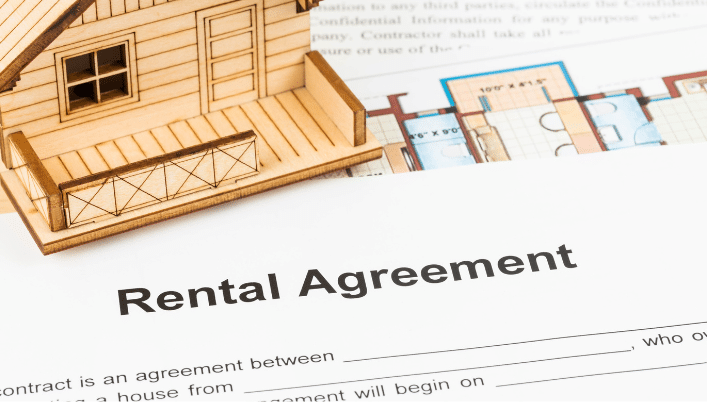
Rental tenancy agreement is a legally binding contract between a landlord and a tenant that outlines the terms and conditions of renting a property.
It serves as a written record of the agreement and protects the rights and obligations of both parties.
This article will provide an in-depth understanding of rental tenancy agreements, the key roles of tenants and landlords, navigating the Singapore rental market, essential elements of a tenancy agreement, and the importance of security deposits.
Key Takeaways
- Rental Tenancy Agreement Basics: A rental tenancy agreement, also known as a lease agreement, establishes legal terms between landlords and tenants for occupying rented properties.
- Importance of Agreement: Rental agreements protect the rights of both parties, define responsibilities, and prevent conflicts during the tenancy.
- Preparation of Agreement: Typically prepared by landlords or authorized representatives, tenants should thoroughly review terms before signing.
- Tenant Responsibilities: Tenants are responsible for timely rent payment, maintaining property condition, following rules, and minor repairs.
- Landlord Responsibilities: Landlords ensure property safety, maintenance, adherence to laws, and respecting tenant privacy.
- Rights and Obligations: Both parties have rights and obligations defined in the agreement, ensuring a fair and compliant tenancy.
- Finding a Rental Property: Prospective tenants can search through property agents, online listings, and neighborhoods while clarifying budgets and needs.
- Common Challenges for Tenants: High prices, competition, and limited options pose challenges. Knowing rights and obligations is crucial.
- Choosing the Right Property: Location, amenities, transportation, and property condition are vital factors for selecting a suitable rental.
- Essential Elements of Agreement: Key clauses include rent, duration, property use, maintenance, and termination options. Clear terms are crucial.
Introduction to Rental Tenancy Agreements
What is a rental tenancy agreement?
A rental tenancy agreement, also known as a lease agreement or tenancy agreement, is a contract that establishes the legal relationship between a landlord and a tenant.
It specifies the terms and conditions under which the tenant can occupy the rented property.
Why is a rental tenancy agreement important?
A rental tenancy agreement is important because it protects the rights and interests of both the tenant and the landlord.
It clearly defines their respective responsibilities and obligations, ensuring a smooth and fair landlord-tenant relationship.
Additionally, it helps to avoid any disputes or misunderstandings that may arise during the tenancy period.
Who prepares the rental tenancy agreement?
The rental tenancy agreement is typically prepared by the landlord or their authorized representative, such as a property agent or lawyer.
It is important for both parties to carefully review and understand the terms outlined in the agreement before signing it.
Key Roles: Tenant and Landlord Explained
What are the responsibilities of a tenant?
The tenant has several responsibilities, including paying the rent on time, maintaining the property in good condition, and adhering to the rules and regulations stated in the tenancy agreement.
They are also responsible for minor repairs and ensuring that the property is returned in the same condition as when it was rented, minus fair wear and tear.
What are the responsibilities of a landlord?
The landlord is responsible for ensuring the property is safe and habitable for the tenant.
This includes maintaining the property, making any necessary repairs, and complying with all relevant laws and regulations.
The landlord must also respect the tenant’s privacy and adhere to the agreed-upon terms in the tenancy agreement.
What are the rights and obligations of both parties?
Both the tenant and the landlord have certain rights and obligations that are outlined in the tenancy agreement.
The tenant has the right to occupy the rented property for the agreed-upon tenancy period, while the landlord has the right to receive rent payments on time and have their property maintained in good condition.
Both parties are obligated to comply with the terms stated in the agreement and act in good faith throughout the tenancy.
Navigating the Singapore Rental Market: Tenant’s Perspective

How to find a rental property in Singapore?
Finding a rental property in Singapore can be a challenging process.
Prospective tenants can start their search by contacting property agents, checking online property listings, and exploring neighborhood areas.
It is crucial for tenants to define their budget and requirements before starting the search to narrow down their options.
What are the common challenges faced by tenants in Singapore?
Tenants in Singapore often face challenges such as high rental prices, competition for popular locations, and limited availability of suitable properties.
Additionally, tenants need to be aware of their rights and obligations as outlined in the tenancy agreement to avoid any disputes or misunderstandings.
What are the essential considerations while choosing a rental property?

When choosing a rental property in Singapore, tenants should consider factors such as location, proximity to amenities, transportation options, and the condition of the property.
It is important to inspect the property thoroughly and discuss any concerns or issues with the landlord before signing the tenancy agreement.
Essential Elements of a Tenancy Agreement
What are the key clauses in a tenancy agreement?
A tenancy agreement typically includes clauses regarding the rent amount and payment terms, the duration of the tenancy, the use of the property, maintenance responsibilities, and termination and renewal options.
It may also include additional clauses related to specific requirements or preferences of the landlord and tenant.
What are the terms of the tenancy that should be clearly stated?
The tenancy agreement should clearly state the start and end date of the tenancy, the amount of rent and how it should be paid, the notice period for termination or renewal, any penalties for late payment or breaches of the agreement, and any additional terms or conditions agreed upon by both parties.
What happens if any party fails to comply with the obligations stated in the agreement?
If either the tenant or the landlord fails to comply with the obligations stated in the tenancy agreement, it may lead to a breach of the agreement.
In such cases, the non-compliant party may face consequences, such as penalties or legal actions.
It is important for both parties to communicate and resolve any issues or disputes amicably.
Security Deposit: Ensuring a Smooth Landlord-Tenant Relationship

What is a security deposit, and why is it required?
A security deposit is a sum of money paid by the tenant to the landlord as a form of insurance against potential damages or unpaid rent.
It serves as a guarantee for the landlord and is typically returned to the tenant at the end of the tenancy period, provided there are no damages or outstanding payments.
How much security deposit can a landlord ask for?
In Singapore, landlords can typically request a security deposit equivalent to one month’s rent for a lease period of less than two years, or two months’ rent for a lease period of two years or more.
The exact amount may vary depending on the rental market conditions and individual agreements between the landlord and tenant.
What are the circumstances under which a security deposit can be forfeited?
A security deposit can be forfeited if the tenant breaches the tenancy agreement, causing damage to the property beyond fair wear and tear, or fails to pay rent or other agreed-upon charges.
The landlord must provide evidence of the breach and follow the necessary legal procedures to forfeit the security deposit.
Understanding the Signing Process: Tenant and Landlord Obligations
A rental tenancy agreement is a legally binding document that establishes the terms and conditions of the rental relationship between the tenant and the landlord.
It includes important details such as the rental period, the monthly rent, and any additional clauses or provisions that both parties need to adhere to.
As a tenant, it is essential to understand your rights and responsibilities.
These include paying the rent on time, maintaining the rental unit, and adhering to any rules or regulations set by the landlord.
On the other hand, landlords have obligations such as maintaining the property, ensuring a safe living environment, and responding promptly to repair requests.
When negotiating the terms and conditions of a rental agreement, it is crucial to have open communication with the landlord.
Clarify any doubts and make sure that both parties are satisfied with the agreed-upon terms.
This will help avoid misunderstandings and disputes in the future.
The Role of the Housing Development Board (HDB) in Rental Agreements
In Singapore, the Housing Development Board (HDB) plays a crucial role in regulating rental properties.
If you plan to rent an HDB flat, there are specific regulations and eligibility criteria to consider.
These criteria include citizenship status, family nucleus, and income ceiling.
Before renting an HDB property, you will need to submit the necessary documentation and follow the required procedures.
This typically involves completing an application form, providing proof of income, and paying a deposit.
The HDB ensures that rental properties meet certain standards and promotes fair practices between tenants and landlords.
Dealing with Unpaid Rent: Procedures and Legal Considerations
In some cases, tenants may fail to pay the rent on time or default on their monthly payments.
When this happens, landlords need to take appropriate steps to address the issue.
It is important for landlords to document any instances of unpaid rent and communicate with the tenant to find a resolution.
If a tenant continuously fails to pay rent, landlords have legal remedies available to them.
These can include serving a notice to pay rent, seeking legal action, and even terminating the tenancy agreement.
However, it is crucial to comply with the legal requirements and follow the proper procedures to avoid legal complications.
Unpaid rent can have significant implications for both tenants and landlords.
Tenants may face eviction, while landlords may suffer financial losses.
It is always recommended to seek legal advice in such situations to ensure that your rights are protected.
Maintenance and Repairs: Landlord and Tenant Responsibilities
Maintaining the rental property is the joint responsibility of both the landlord and the tenant.
Landlords have a duty to provide a safe and habitable environment for tenants.
This includes ensuring that the property is free from any hazards and conducting regular maintenance to keep the property in good condition.
On the other hand, tenants are responsible for maintaining the rented unit and reporting any maintenance issues to the landlord promptly.
This includes basic cleaning, taking care of minor repairs, and using the property in a responsible manner.
Both parties should address any maintenance or repair issues promptly to avoid further damage and conflicts.
Common repair and maintenance issues in rental properties can include plumbing problems, electrical faults, and general wear and tear.
It is important for tenants to communicate these issues to the landlord and for landlords to respond and resolve them in a timely manner.
Termination Clauses: Rights and Obligations for Both Parties
Termination clauses are an important aspect of rental agreements.
They outline the rights and obligations of both tenants and landlords when terminating the agreement.
Different clauses may apply depending on the lease term, such as a two-year lease or a 12-month lease.
Both tenants and landlords should be aware of the procedures to follow for a smooth termination process.
Adequate notice should be given to the other party, as specified in the rental agreement.
This allows for sufficient time to make necessary arrangements and provides clarity on the end date of the tenancy.
If either party wishes to terminate the agreement before the agreed-upon rental period, they may need to pay additional rent or comply with specific conditions outlined in the termination clause.
It is important to review the termination clause carefully and seek legal advice if needed.
Stamp Duty in Rental Agreements: Calculation and Payment

Understanding stamp duty
Stamp duty is a tax imposed by the government on the execution of certain legal documents, including rental agreements.
In the context of rental agreements, stamp duty is the fee paid by the tenant or the landlord to legalize the agreement.
It serves as evidence of the transaction and helps protect the rights of both parties involved.
The payment of stamp duty is a legal requirement and failing to comply with it may result in penalties or disputes in the future.
Calculating stamp duty for rental agreements
The calculation of stamp duty for rental agreements varies depending on the jurisdiction and the terms of the agreement.
Generally, stamp duty is calculated based on the total rental amount agreed upon in the contract.
It is advisable to consult the relevant government authorities or seek legal advice to determine the exact stamp duty amount applicable to your rental agreement.
Payment of stamp duty
The responsibility for paying stamp duty can either fall on the tenant or the landlord, depending on the negotiations and local regulations.
In some cases, it may be shared between both parties.
The payment of stamp duty is typically made within a specified period after the signing of the rental agreement.
Failure to pay stamp duty within the stipulated time may result in additional penalties or disputes.
Addressing Common Disputes: Diplomatic Clause and Other Safeguards

What is a diplomatic clause in a rental agreement?
A diplomatic clause is a provision that is typically included in rental agreements to provide flexibility for tenants who may need to terminate their lease prematurely due to specific circumstances.
This clause is commonly used by expatriates or individuals working for diplomatic missions who may need to relocate to another country or city before the end of their lease term.
It allows tenants to terminate the lease by giving sufficient notice, usually within a specified period.
Common disputes related to rental agreements
Rental agreements can give rise to various disputes between landlords and tenants.
Some common disputes include disagreements over rental payments, maintenance responsibilities, damage to the property, early termination of the lease, or breach of contract.
It is crucial for both parties to clearly outline their rights and obligations in the rental agreement to avoid potential disputes.
Other safeguards to consider in rental agreements
In addition to the diplomatic clause, there are other safeguards that can be included in rental agreements to protect the interests of both the landlord and the tenant.
These safeguards may include clauses related to the payment of rent, suspension of rent in certain situations (such as damage to the property), grace periods for rent payment, maintaining the property and its inventory items, and regulations regarding unrelated people staying in the rental premises.
Legal Documents and Regulations: Staying Compliant in Rental Agreements
Importance of legal documents in rental agreements
Legal documents play a critical role in rental agreements as they provide a written record of the agreed terms and conditions between the landlord and the tenant.
These documents provide protection and clarity to both parties and help avoid misunderstandings or disputes in the future.
Common legal documents associated with rental agreements include the tenancy agreement, inventory list, rental receipts, and any additional addendums or annexures.
Regulations to be aware of in rental agreements
When entering into a rental agreement, it is essential to be aware of the relevant regulations and laws that govern the renting of residential properties in your jurisdiction.
These regulations may cover areas such as rent control, eviction procedures, habitability standards, and fair housing practices.
Adhering to these regulations not only ensures compliance but also contributes to maintaining a healthy landlord-tenant relationship.
Ensuring compliance with rental agreement laws
To ensure compliance with rental agreement laws, both landlords and tenants should familiarize themselves with the legal requirements in their jurisdiction.
It is advisable to consult legal professionals or relevant government agencies to understand the specific regulations and obligations associated with rental agreements.
Regular communication and transparency between both parties can also help in staying compliant and resolving any potential issues.
Rental Market Trends: Prospective Tenants and Future Outlook

Current trends in the rental market
The rental market experiences various trends and shifts based on factors such as the economy, demographics, and local housing market conditions.
It is crucial for prospective tenants to stay informed about these trends to make informed decisions.
Some current trends in the rental market include the rise of co-living spaces, increased demand for sustainable and “smart” homes, and the impact of the COVID-19 pandemic on rental prices and preferences.
Factors to consider for prospective tenants
Prospective tenants should consider several factors before entering into a rental agreement.
These factors may include the location and accessibility of the property, proximity to essential services and amenities, rental prices and affordability, lease terms and conditions, safety and security measures, and the reputation of the landlord or property management company.
In-depth research and property visits can help prospective tenants make informed decisions.
Future outlook of the rental market
The future outlook of the rental market can be influenced by various factors such as changes in government policies, economic conditions, and social trends.
While it is challenging to predict future market conditions with certainty, experts project that rental demand will continue to be strong, especially in urban areas.
The rental market is expected to adapt to evolving needs, including increased focus on sustainability, technology integration, and flexible lease terms.
Expert Advice: How to Safeguard Your Interests in a Rental Agreement
Important clauses to include in a rental agreement
When drafting or reviewing a rental agreement, it is advisable to include important clauses that protect the interests of both landlords and tenants.
These clauses may include provisions regarding rent payment methods and schedule, agent commissions, maintenance responsibilities, dispute resolution procedures, and specific terms related to early termination or renewal of the lease.
Including these clauses can provide clarity and prevent potential disputes in the future.
Protecting your interests as a tenant
As a tenant, it is essential to understand your rights and take steps to protect your interests in a rental agreement.
This includes thoroughly reading and understanding the terms and conditions of the agreement, conducting a thorough inspection of the property before moving in, documenting any damages or issues, paying rent on time, and communicating openly with the landlord regarding any concerns or repairs needed.
Additionally, tenants should consider obtaining rental insurance to safeguard their belongings.
Protecting your interests as a landlord
As a landlord, it is crucial to safeguard your interests and protect your property when entering into a rental agreement.
This includes conducting background checks on prospective tenants, properly maintaining the property and its inventory items, promptly addressing any repair requests, providing sufficient notice for inspections or lease termination, and documenting the condition of the property before and after the tenancy.
Ensuring clear communication and using proper legal documentation can also help protect the rights of the landlord.
In conclusion, a rental tenancy agreement is a legally binding document that governs the relationship between landlords and tenants.
Understanding the various aspects related to rental agreements, including stamp duty calculation and payment, addressing common disputes, staying compliant with legal documents and regulations, rental market trends, and expert advice on safeguarding interests, is crucial for both parties involved.
By following these guidelines and being proactive in ensuring compliance and maintaining open communication, a rental agreement can be a mutually beneficial agreement for all parties involved.
Conclusion
By understanding the rental tenancy agreement and the rights and obligations of both tenants and landlords, individuals can ensure a smooth and mutually beneficial rental experience.
It is crucial to read and negotiate the terms and conditions, communicate openly with the landlord or tenant, and seek legal advice when needed.
Ensuring compliance with the rental agreement and understanding the legal procedures will help to avoid conflicts and minimize any potential issues during the rental period.
From the very essence of a rental tenancy agreement, which bridges the gap between a landlord and a tenant, to the pivotal role it plays in safeguarding interests and nurturing a seamless coexistence, you’ll delve into a realm where clarity and communication reign supreme.
These agreements, often known as lease agreements, embody more than just legal jargon; they form the bedrock upon which dwellings become homes and where expectations meet reality.
Through this expedition, you’ll explore the vital components of rental agreements.
Uncover the significance of clauses that intricately map out obligations and rights, ensuring a well-balanced partnership.
Witness the power of stamp duty, a financial acknowledgment of commitment, and grasp its implications in an ever-evolving landscape.
Yet, this voyage extends beyond ink and paper.
It delves into the heart of disputes, offering you insights into navigating uncharted waters with diplomacy and adherence to the rule of law.
As you sail through the seas of maintenance and repairs, be enlightened on how both landlords and tenants share in the responsibility of nurturing the places they call home.
Amidst the vast expanse of regulatory landscapes, you’ll uncover the role of governing bodies like the Housing Development Board (HDB), poised to harmonize standards and create equitable living environments.
Learn to wield the diplomatic clause as a beacon of flexibility, allowing tenants unforeseen twists in their life’s journeys.
As the rental market’s tides ebb and flow, you’ll gain invaluable insights into emerging trends and future trajectories.
Equip yourself with the tools to make informed choices, whether as a prospective tenant seeking your sanctuary or as a landlord guarding your cherished investment.
In this captivating finale, our sage advice leaves you well-equipped to navigate this intricate realm.
Whether you’re a tenant seeking solace or a landlord guarding your castle, heed the counsel of experts who’ve traversed these paths.
Embrace the wisdom that balances the scales, fostering a realm of harmony, transparency, and compliance.
So, dear reader, as you step into the world of rental tenancy agreements, let this knowledge empower you.
Let it be your compass in the labyrinth of leases, your shield against disputes, and your guide to forging unbreakable bonds in the realm of rented abodes.
Your journey begins now, and the possibilities are as limitless as the horizons that stretch before you.
Frequently Asked Questions
What is a Rental Tenancy Agreement?
A Rental Tenancy Agreement is a contractual agreement between a landlord and a tenant that outlines the terms and conditions of the rental property.
What does the Rental Tenancy Agreement cover?
The Rental Tenancy Agreement covers important aspects such as the duration of the tenancy, rental amount, payment schedule, maintenance responsibilities, termination conditions, and any other agreement-specific terms.
Why is it important to sign a Rental Tenancy Agreement?
Signing a Rental Tenancy Agreement is important as it legally binds both the landlord and the tenant to the agreed-upon terms and helps protect both parties’ rights.
Are there standard tenancy agreement templates available?
Yes, there are standard tenancy agreement templates available, which can be used as a starting point for creating a customized agreement that suits the specific needs of the landlord and tenant.
Do I need to pay rental stamp duty when signing a Rental Tenancy Agreement?
Yes, rental stamp duty is applicable when signing a Rental Tenancy Agreement.
The amount of stamp duty depends on the rent amount and the duration of the tenancy.
Can a Rental Tenancy Agreement be terminated prematurely?
Yes, a Rental Tenancy Agreement can be terminated prematurely but it is subject to certain conditions.
Both the landlord and tenant need to discuss the termination and come to a mutual agreement.
What happens if the tenant fails to pay rent on time?
If the tenant fails to pay rent on time, the landlord may take legal actions such as issuing a notice of termination or filing a claim in the small claims tribunal.
What are the landlord's responsibilities within the tenancy?
The landlord’s responsibilities within the tenancy include maintaining the property in a tenantable repair, ensuring safety and security, and addressing any maintenance or repair issues promptly.
Can the tenant terminate the tenancy and re-enter the premises at any time?
No, the tenant cannot terminate the tenancy and re-enter the premises at any time.
The termination of the tenancy must be done according to the agreed-upon terms in the Rental Tenancy Agreement.
Is there any association or regulatory agencies in Singapore that oversee landlord-tenant relations?
Yes, in Singapore, the Association of Singapore and regulatory agencies such as the Singapore Tourism Board and the Council for Estate Agencies oversee landlord-tenant relations to ensure fair practices.












